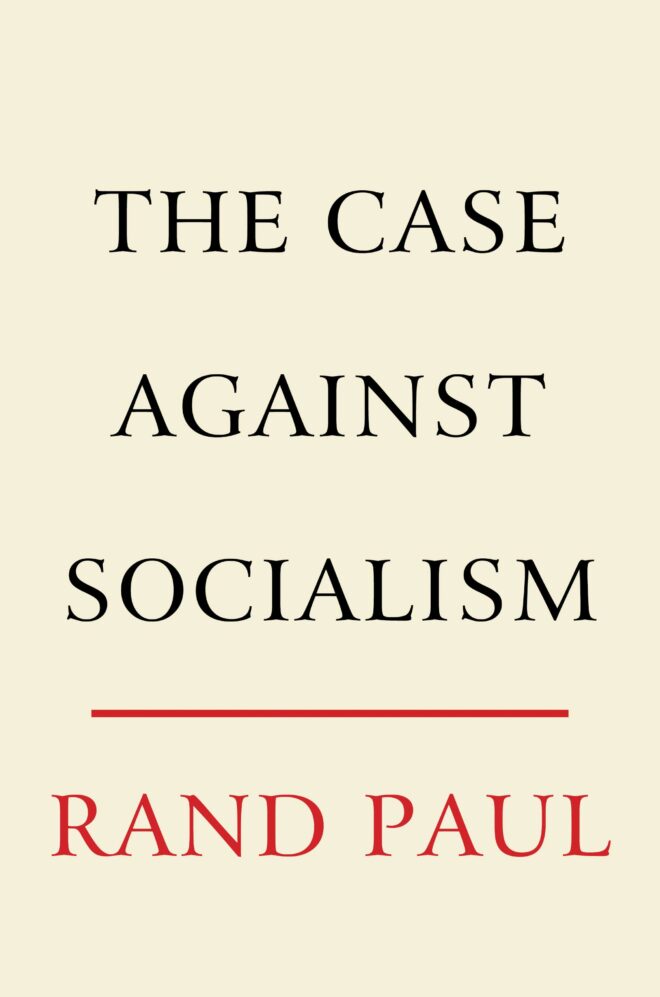Samuel R. Staley • Monday, October 28, 2019 •
 The political roots of the modern school-choice movement are still poorly understood nearly thirty years after the first publicly funded private-school voucher program was established in Milwaukee, Wisconsin, in 1990. Miss Virginia, a narrative film in select theaters and Amazon Prime, helps fill this void, offering a rare look at the political realities underlying public school reform.
The political roots of the modern school-choice movement are still poorly understood nearly thirty years after the first publicly funded private-school voucher program was established in Milwaukee, Wisconsin, in 1990. Miss Virginia, a narrative film in select theaters and Amazon Prime, helps fill this void, offering a rare look at the political realities underlying public school reform.
Directly inspired by real-life education reform activist Virginia Walden Ford, Miss Virginia tells the story of Virginia Walden (Uzo Aduba, Orange is the New Black), an African-American single parent turned education-reformer in Washington, D.C. As her teenage son, James (Niles Fitch), feels the lure of drug gangs and street life in their neighborhood, Walden tries to get him out of the failed public school and into a private-school alternative. At first, she tries to enroll him in a nearby religious school. The new school environment turns her son into an enthusiastic learner. But, even working two jobs, she can’t scrape up enough money to pay for the tuition.
Craig Eyermann • Monday, October 28, 2019 •
The U.S. Treasury Department has released its final monthly treasury statement for the federal government’s 2019 fiscal year, including its final accounting for the entire year. It paints a scary picture of how the growth of government spending is behind the government’s resurgent annual budget deficit, which totaled $984 billion for the year, narrowly missing the trillion dollar mark by just $16 billion.
George D. O'Neill Jr. • Thursday, October 24, 2019 •
 Socialism has been tried on six continents and in numerous countries, but always with the same failed result. Despite geographic, economic, and other national differences, the experience of socialism follows a consistent trajectory, with its trademark features—poverty, shortages of resources, and repression—always on display.
Socialism has been tried on six continents and in numerous countries, but always with the same failed result. Despite geographic, economic, and other national differences, the experience of socialism follows a consistent trajectory, with its trademark features—poverty, shortages of resources, and repression—always on display.
Senator Rand Paul’s new book, The Case Against Socialism, is a timely response to the misguided enthusiasm for socialism that’s taken hold in the United States. From well-known members of Congress to college students, there is a growing fervor to go down the road that inevitably leads to serfdom. Senator Paul directly refutes the popular argument that socialism’s failures are simply the result of poor execution or improper implementation.
The 20th century was the bloodiest in human history, in large part because of the totalitarian governments committed to socialism.
Paul’s book is concise and informative, carefully researched and easy to read. I recommend it to all who are interested in understanding the popular deceptions that mask the true evils of socialism.
[This post first appeared in The American Conservative (10/16/19).]
K. Lloyd Billingsley • Wednesday, October 23, 2019 •
The U.S. Supreme Court will hear a case challenging the federal Consumer Financial Protection Agency, CNBC reports. A California law firm “alleges that the structure of the agency grants too much power to its director, in violation of the Constitution’s separation of powers.”
The CFPB director can be removed only for inefficiency, neglect of duty or malfeasance in office, and Supreme Court Justice Brett Kavanaugh is already on record that, aside from the President of the United States, the CFPB boss is the most powerful person in the federal government. As the report recalls, the bureau is “a regulatory agency established in the wake of the 2008 financial crisis,” but there’s a bit more to it.
Alvaro Vargas Llosa • Monday, October 21, 2019 •
The famous quote mistakenly attributed to French Diplomat Talleyrand — “It is worse than a crime, it’s a mistake” — fits Turkish dictator Recep Tayyip Erdoğan’s attack on the Kurds in northeastern Syria perfectly.
The defeat of the Syrian Kurds at the hands of the Turks, including the many casualties and tens of thousands of civilians who have had to flee the region, will serve to strengthen the resolve of those who believe that only terrorism can serve the cause of the Kurds vis-à-vis the Turkish state. One hundred years of Turkish nationalism, which started with the founding of the modern state under Kemal Atatürk, have not put out the fire of Kurdish nationalism despite the heavy repression that the Kurds have suffered periodically during the 20th and early 21st centuries.
Craig Eyermann • Monday, October 21, 2019 •
Across the United States, a large number of public employee pension funds face the serious risk of running into insolvency because politicians have promised millions of state and local bureaucrats far more generous retirement benefits than they are capable of paying.
Many of these politicians are more than willing to negotiate incredibly favorable contracts with the public employee unions that demand lavish pension benefits for their members in return for their political support. However, when it comes time to pay the bills associated with the deals they’ve made, these policymakers often turn to smoke-and-mirrors accounting tricks to hide just how far short they are in covering the costs of their largesse with taxpayer money. Some of their tricks include:
David J. Theroux • Saturday, October 19, 2019 •

W. Dieter Tede (1933-2019)
I was privileged to present a tribute at the memorial celebration for the life of Wolfgang Dieter Tede, on Saturday, October 19, 2019, at the St. Francis Yacht Club in San Francisco. He was a member of the Board of Directors of the Independent Institute for over twenty years, and here is an edited version of my presentation:
I am deeply honored to have the opportunity to speak in tribute about our very dear friend and colleague Dieter Tede, the remarkable immigrant who became a model global entrepreneur.
I first met Dieter in 1994 and visited with him and his beautiful wife, the late, renowned, mezzo-soprano singer, Margery Crockett Tede, in their lovely home in San Francisco. I already knew of his highly successful work in maritime shipping as Founding Partner of Marine Chartering Company, the worldwide, multi-service ocean transportation brokerage firm (see his engaging, illustrated book, The First Forty Years: Marine Chartering Company, Inc.) and other ventures, including producing vintage wines (Audubon Cellars and later the Hooper Creek Winery).
Raymond J. March • Thursday, October 17, 2019 •
In 2001, twenty-one-year-old Abigail Burroughs was dying of cancer. After all conventional treatment methods failed to improve her condition, Abigail’s oncologist pleaded with the Food and Drug Administration to allow her to try Erbitux. At the time, Erbitux had not fully passed the FDA’s drug approval process. Abigail was denied access and lost her battle to cancer shortly after. The FDA eventually approved Erbitux in 2004 to treat the same cancer which cost Abigail her life.
Heartbreaking stories like Abigail’s (and thousands of others) provoked a country-wide movement to allow terminally ill patients the right to try experimental treatments to prolong their lives. This movement became the impetus for right-to-try legislation. Right-to-try legislation grants patients with terminal illnesses access to potentially lifesaving drugs before the FDA fully approves them. By side-stepping the FDA’s formal approval process, decisions to try unproven, although potentially beneficial, treatments are left to patients, physicians, and drug producers.
K. Lloyd Billingsley • Tuesday, October 15, 2019 •
The University of Mary Hardin-Baylor in Belton, Texas, is not known as an athletic powerhouse, but in 2016 the school won the Division III football championship. Three years later, the National Collegiate Athletic Association took the title away, as Fox News reports, “because the head coach let a player use his car for more than 18 months.” The NCAA ruling means that 29 of the school’s victories between 2016 and 2017 will be vacated. The losses will stand, even though, like the wins, they had nothing to do with a player’s use of a coach’s car. The NCAA also placed the program on probation for two years and imposed enhanced compliance training, along with a $2,500 fine. This absurd action is hardly the only problem with the NCAA.
Craig Eyermann • Monday, October 14, 2019 •
Robert Kaplan, the president of the Federal Reserve Bank of Dallas, has confirmed that the surge in U.S. government borrowing in September 2019 was a primary cause of the liquidity crisis affecting the nation’s money markets. Reuters reports that revelation from Kaplan’s speech on Friday, October 11, to the Commonwealth Club of San Francisco:
Dallas Federal Reserve Bank President Robert Kaplan on Friday blamed U.S. borrowing to fund a growing deficit for the liquidity crunch in overnight funding markets that the central bank earlier on Friday addressed with a new program to buy Treasury bills.
“The dramatic increase in Treasury issuance takes liquidity out of the system,” Kaplan said at the Commonwealth Club. “That I think is at the top of the list for reasons we need more liquidity.” The other reason, he said, is post-financial-crisis regulation that forces banks to hold more reserves.
Kaplan said the liquidity issue the Fed is addressing is not a sign of a bigger problem and the action the Fed is taking to address it is technical and separate from monetary policy.
 The political roots of the modern school-choice movement are still poorly understood nearly thirty years after the first publicly funded private-school voucher program was established in Milwaukee, Wisconsin, in 1990. Miss Virginia, a narrative film in select theaters and Amazon Prime, helps fill this void, offering a rare look at the political realities underlying public school reform.
The political roots of the modern school-choice movement are still poorly understood nearly thirty years after the first publicly funded private-school voucher program was established in Milwaukee, Wisconsin, in 1990. Miss Virginia, a narrative film in select theaters and Amazon Prime, helps fill this void, offering a rare look at the political realities underlying public school reform.






